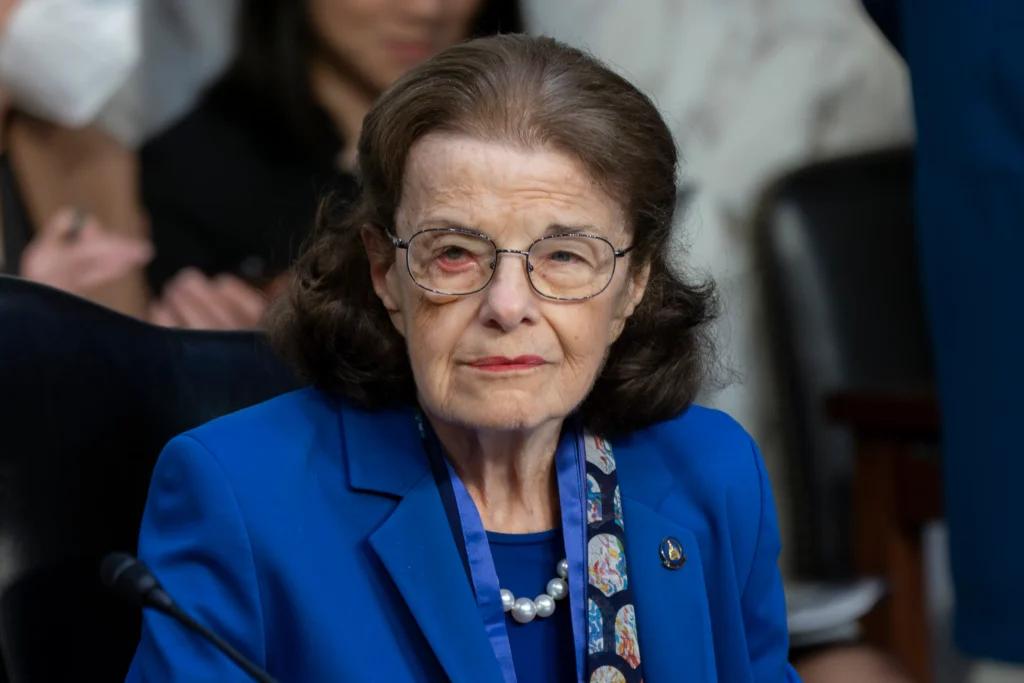U.S. Senator Dianne Feinstein of California, a notable centrist Democrat and advocate for progressive causes, passed away at the age of 90. Elected to the Senate in 1992, Feinstein was a trailblazer for women in politics, both locally and nationally.
She passed away at her Washington, D.C. residence on Thursday night, as confirmed by her office the following day. Tributes flowed in, with Senate Majority Leader Chuck Schumer describing her as a “Senate titan.”
In his emotional tribute, Schumer highlighted her groundbreaking achievements and her dedication to shattering gender barriers. President Joe Biden, who worked alongside Feinstein in the Senate, remembered her as a “pioneering American” and a “dear friend.”
The responsibility of appointing her interim successor falls to California Governor Gavin Newsom, and the race to fill her seat is anticipated to be highly competitive.
Throughout her tenure, Feinstein was known for her commitment to California’s progressive priorities, such as environmental conservation, reproductive rights, and gun control. However, she was also recognized for her pragmatic approach, often collaborating with Republicans to find common ground.
Her recent health challenges, including a shingles episode, had raised concerns among some Democrats. Despite her health setbacks, Feinstein’s legacy as a fierce advocate for her beliefs remained intact.
On Friday, a somber mood enveloped the Senate chamber, with Feinstein’s desk adorned in black and white roses. Emotional tributes were given, with Senate Republican Leader Mitch McConnell among those honoring the Democratic stalwart.
Former presidents Barack Obama and Bill Clinton also paid their respects, lauding her dedication to civil rights, environmental conservation, and national security.
Feinstein’s political journey began in San Francisco, where she was elected to the Board of Supervisors in 1969. She became the city’s first female mayor following the tragic assassination of Mayor George Moscone and Supervisor Harvey Milk in 1978.
In the Senate, Feinstein achieved numerous firsts for women, including chairing the Senate Intelligence Committee and leading the Judiciary Committee’s Democratic faction.
Throughout her political career, Feinstein was driven by her experiences, particularly as a woman in a male-dominated field. She was known for her bipartisan approach, which, while earning her significant legislative victories, also drew criticism in an increasingly polarized political climate.
One of her most notable legislative achievements was the 1994 assault weapons ban, a significant victory given her personal experience with gun violence.
Despite facing challenges and criticisms, especially in her later years, Feinstein’s dedication to her beliefs and her state remained unwavering.
Born in 1933, Feinstein faced personal challenges from a young age, including an abusive mother. She graduated from Stanford University in 1955 and entered public service in the early 1960s. Throughout her life, she faced both personal and professional challenges with resilience.
Feinstein’s legacy is marked by her trailblazing spirit, dedication to public service, and her unwavering commitment to the causes she believed in.

